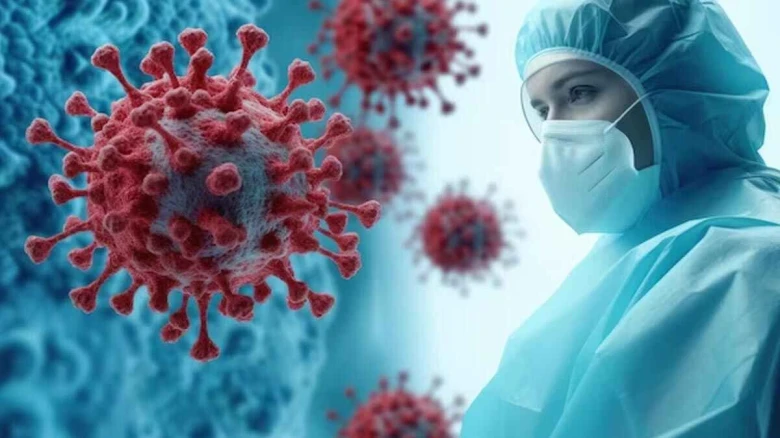Sports

A new group of variants of COVID-19, known as FLiRT variants, has emerged as a cause of concern...
Digital Desk: A new group of variants of COVID-19, known as FLiRT variants, has emerged as a cause of concern in the United States, raising questions about increased transmissibility and immune resistance. These variants, derived from the JN.1 lineage of the Omicron variant, are marked by mutations identified by the letters F, L, R, and T in their genetic codes.
The KP.2 variant, a prominent member of the FLiRT group, has garnered attention due to its rapid spread. Recent data from the US Centers for Disease Control and Prevention (CDC) indicates that KP.2 has been found in approximately 25 percent of newly sequenced cases in the latter half of April 2024, while other variants like KP.1.1 have not exhibited significant spread.
A preprint study posted on the bioRxiv server has analyzed the virological characteristics of the FLiRT variant KP.2, revealing increased transmissibility and immune resistance. Dr. Atul Gogia from Sir Ganga Ram Hospital highlighted the symptoms associated with the FLiRT variant, emphasizing the importance of vigilance and precautionary measures, especially for immunocompromised individuals.
Despite JN.1 still being responsible for the majority of COVID cases in the US, KP.2 is rapidly gaining prevalence. CDC Nowcast projections estimate KP.2 to account for approximately 25% of new COVID-19 illnesses, with its proportion increasing rapidly in recent weeks.
Contrary to initial concerns, a study from researchers in Japan suggests that KP.2 may be less infectious than JN.1. Nevertheless, the World Health Organization (WHO) has recommended basing future vaccine formulations on the JN.1 lineage, anticipating further evolution of the virus.
Dr. Nikhil Modi from Indraprastha Apollo Hospitals elaborated on the symptoms associated with the FLiRT variant, emphasizing the need for caution and observation as the situation evolves.
To mitigate the risk posed by new COVID-19 variants, health experts advocate for vaccination, timely testing, masking, and avoiding crowded indoor areas. Despite the evolving nature of the virus, adherence to these preventive measures remains crucial in combating the spread of COVID-19 and its variants.
Leave A Comment